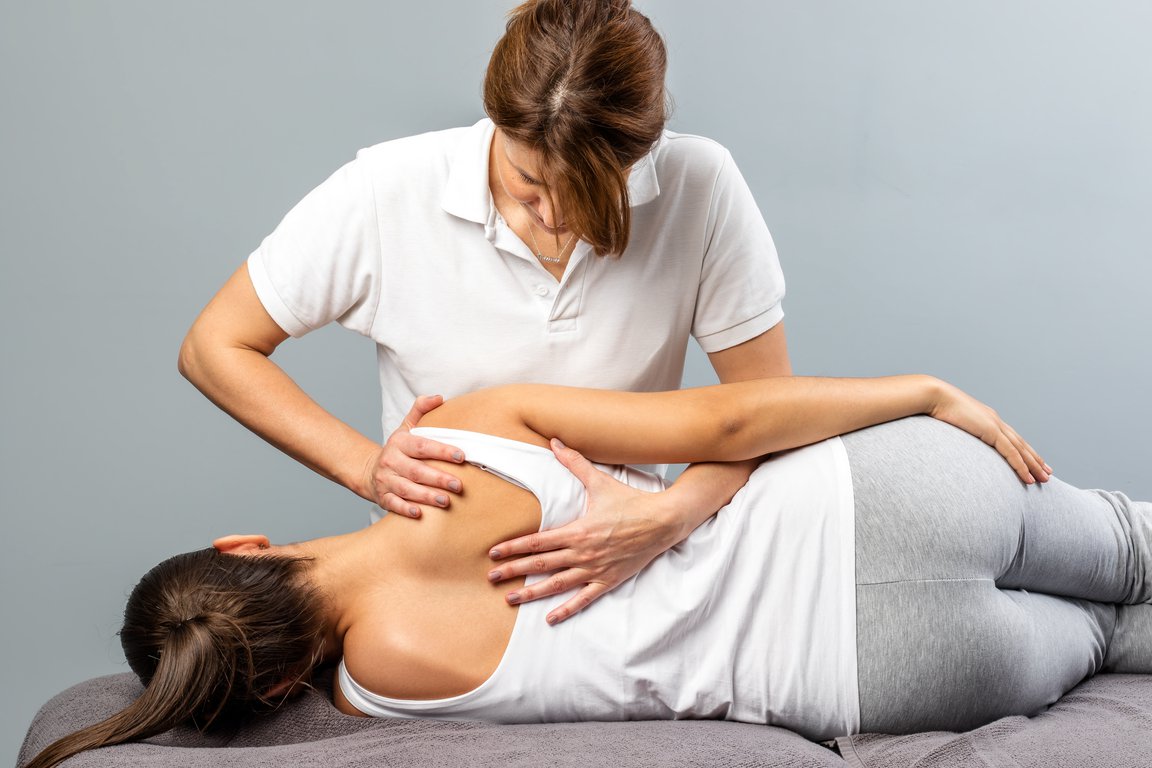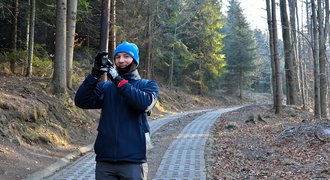We were about to finish skiing for the day. In my last round, I jumped and hit the ground very hard. And my dislocated shoulder story has begun.
A shoulder dislocation occurs when the upper arm bone pops out of the shoulder socket. The most common causes include:
- trauma or injury
- accidents
- repetitive strain - repetitive overhead motions, common in certain sports or occupations, can contribute to shoulder instability and increase the risk of dislocation over time.
- loose ligaments
- previous dislocation
The arm receives an impact so strong that the bone forcefully moves outside of its normal area causing the muscles around it to tear off. As a result, the bone's head stays outside of its socket. Most of the time it can't return without medical intervention.
Shoulder dislocation X-ray - what does it look like in the photo?
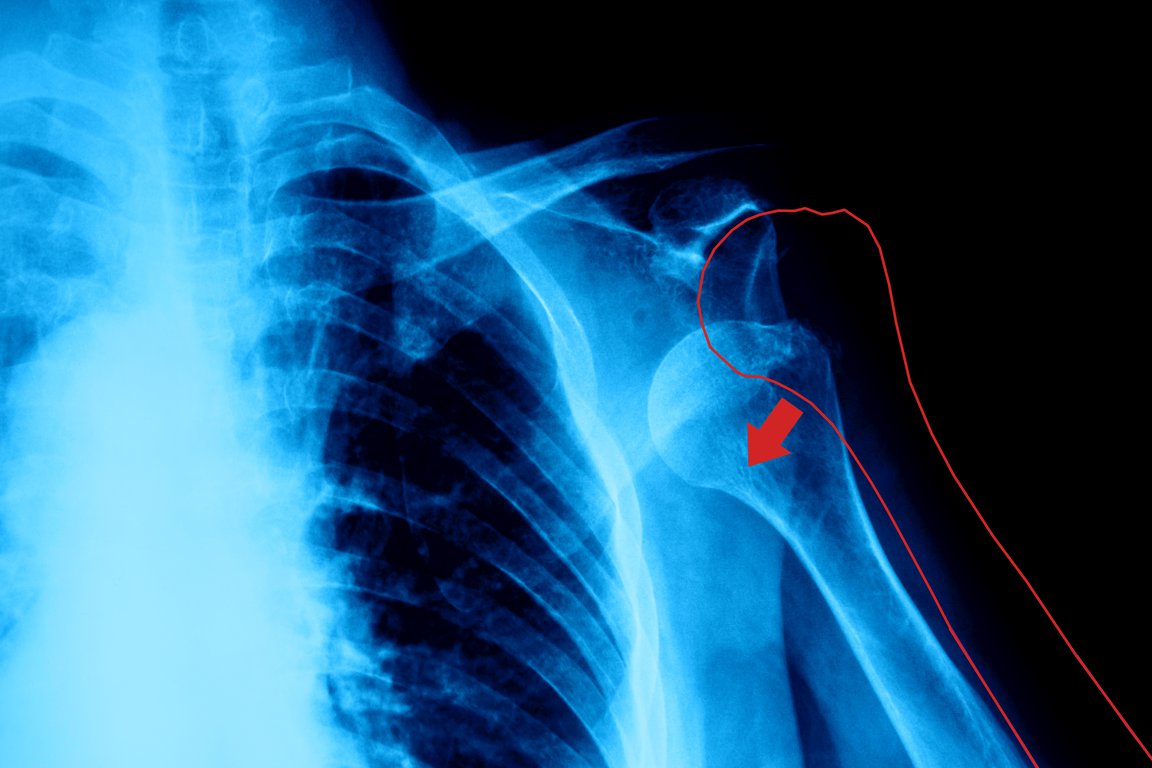
X-ray photo showing dislocated arm. The bone head is much lower than it supposed to be.
Every shoulder dislocation is a little bit unique - the type and range of tissue damage may vary. Some people say they didn't even wear a sling. In my case, I couldn't move my arm an inch and I had large swelling
Table of contents:
- In the first section, I describe my biggest concerns about the injury and what it turned out to be in reality.
- In the section Dislocated Shoulder Q&A, I gather all the questions I had during my recovery time and provide answers to them.
- Next, there is the section: shoulder dislocation recovery tips.
- Then the list of all the equipment I used for my recovery.
- Things I don't advise to do.
- And what are the positive aspects of my shoulder dislocation?
Shoulder dislocation
Concerns
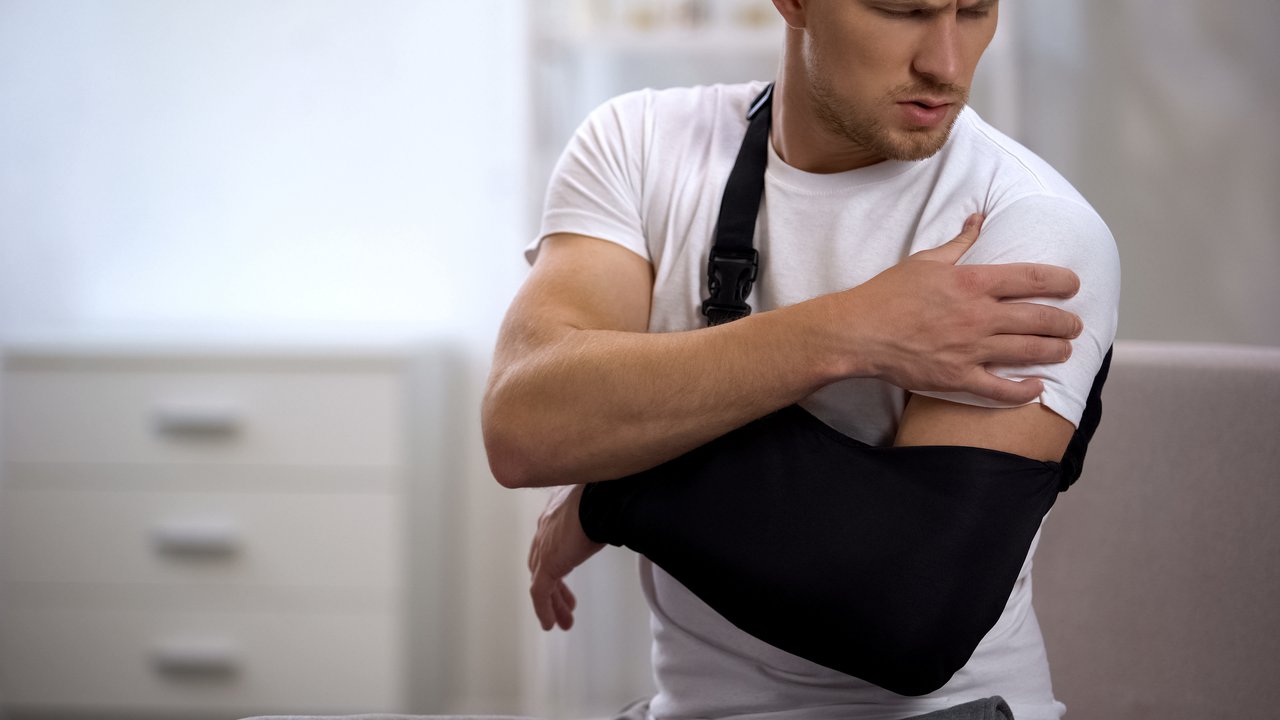
© motortion / Adobe Stock
➡️ Dislocated shoulder pain
The most severe pain I had was for 2 hours while the arm remained in the dislocated position. After my shoulder setting, there was a temporary relief.
In the following weeks, it hurt me a lot, and painkillers were necessary even though I had never taken them before. I couldn't sleep in any position, I slept sitting which wasn't pleasant as well. The constant feeling of discomfort was driving me crazy.
It was almost like when we had a newborn - zero sleep.
➡️ Setting the joint
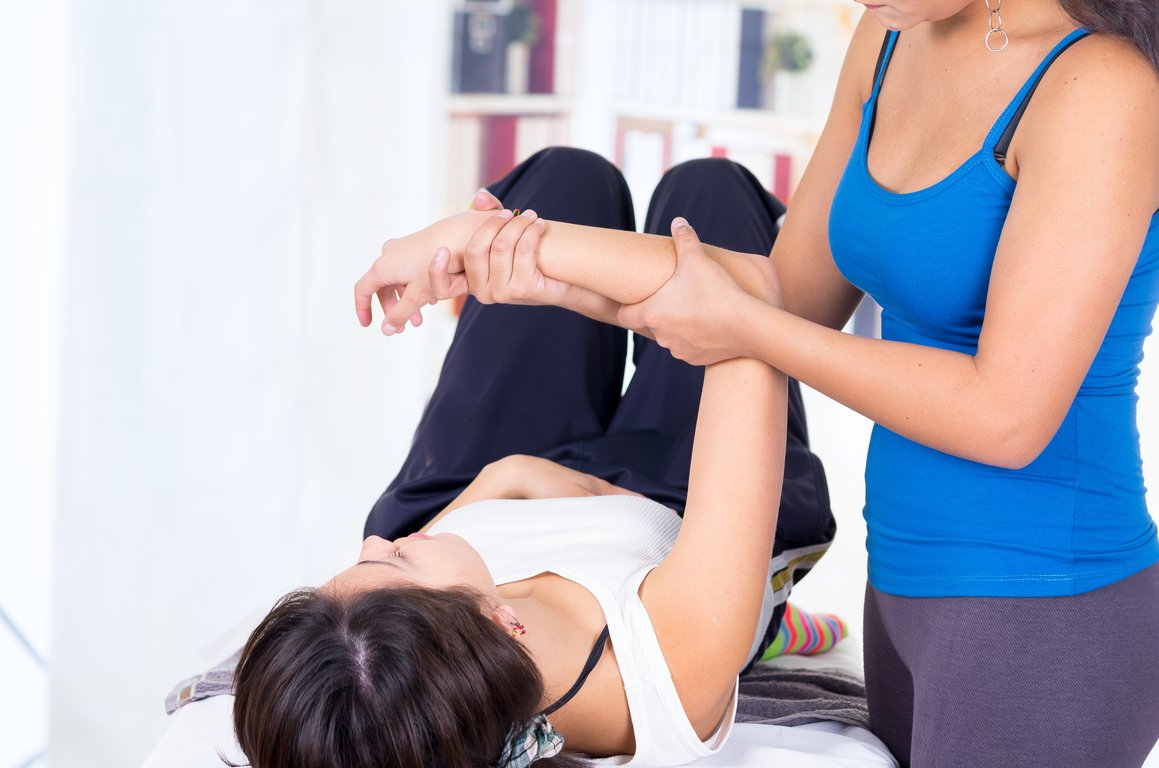
© Fotos 593 / Adobe Stock
It was worrisome, but in painful agony, we don't care. My setting went surprisingly smoothly - I didn't feel anything at all. The secret lies within relaxation and deep breathing - only then our muscles would untie, and the bone is able to jump back into the right place in forceless motion.
It looked exactly like in the attached picture. The medic lifted my arm very gently up, and it just popped back in place.
➡️ Dislocating again
My most significant anxiety was that the entire internet says 90% of men have this injury reoccurred in the next two years.
When muscles aren't strong enough joints may become looser and looser over time causing almost disability. Imagine that we could dislocate it when lifting heavy bags, putting on a t-shirt, opening the door or even when sleeping.
I had a big fear I could end up just like that. The Internet said you have only a 10% chance! It made me very upset.
But what most people don't know it is a choice. When we put more effort into the recovery, chances increase significantly. It is about building balanced and stable muscles through special and often tricky exercises.
➡️ My injured arm seems to hang lower than the healthy one
Once muscles start shrinking from lack of movement (about 1-2 weeks), you will notice that the collarbone is more significant than usual. It is normal because muscle mass shrinks in the area.
And even when the arm is lower than the other one, don't worry - it's not irreversible, it should get back in place after strengthening the muscles again. You can reverse it through exercises. But only when the healing process is over.
➡️ I lost the feeling of my skin on my shoulder
It sometimes happens when a nerve is damaged. I had it in my case as well. It will seem like it doesn't improve over time then suddenly after 3-5 months, you should feel it again.
Dislocated shoulder Q & A
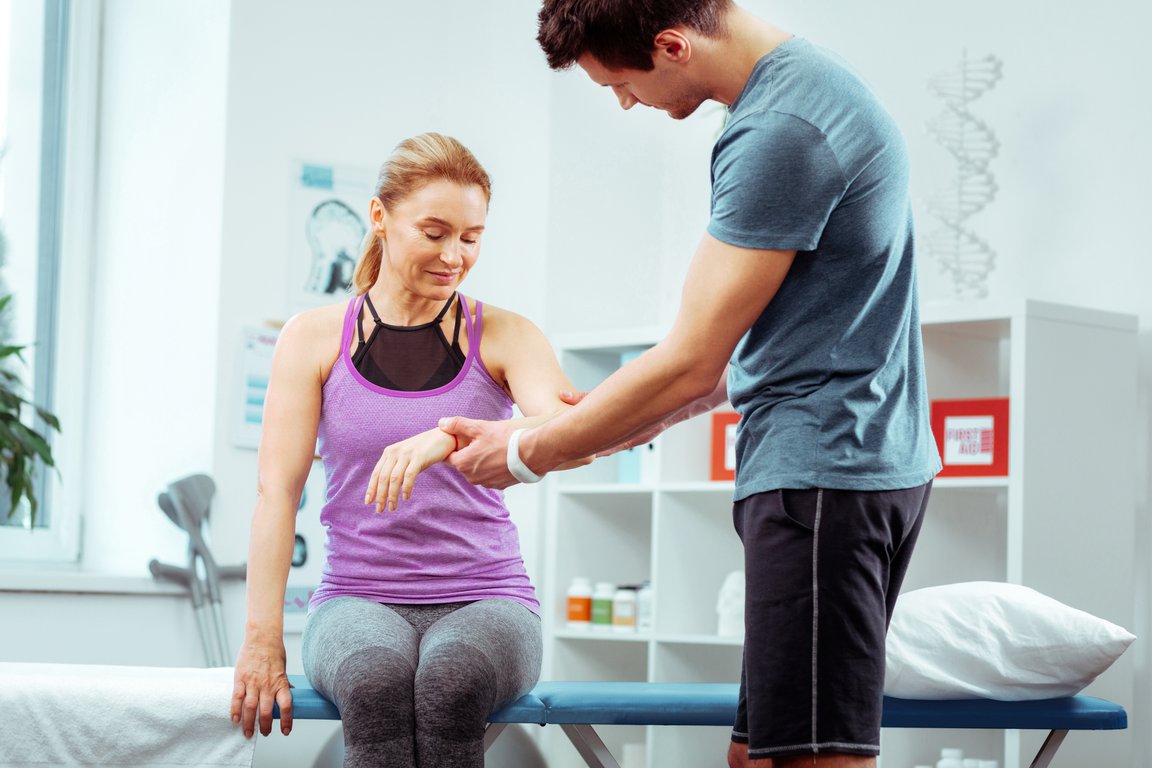
© zinkevych / Adobe Stock
I asked myself 100 questions a day related to the injury. I haven't found anything useful on the Internet. Nothing helped there. Reading horror stories about shoulder dislocation just demotivated me.
Interestingly, I noticed that people who had this injury reoccurred never mentioned they exercised before. They were just full of "God, why me!?".
So that intrigued me into thinking maybe most people aren't really aware of the possible solutions or don't believe in them. This was my main driving force for writing this article.
In case you are that one unlucky person having trouble with recovery for a very long time. I hope to give you a fresh and decent amount of motivation in the form of tips, stories, conclusions and techniques.
✅ Why can't I move my arm even an inch?
Did I injure an important nerve and lose the ability to move?
After 2-5 days after injury, I wasn't able to move my arm, except the fingers and forearm. Apparently, it was due to the body's self-protection mechanism after injury. Our body turns off the nerve system in the area, so we are unable to harm ourselves and end up almost numb in this area.
Also, the body stiffs muscles in the area to hold bones in one position, just like a stabiliser. It was explained to me by one of my physiotherapists.
✅ Any diet recommendations?
From what I learned from the doctor diet doesn't make the difference. Taking collagen seems pointless as young men are prone to this injury due to high amounts of collagen in their joints making them more elastic and vulnerable.
✅ How fast do the muscles shrink?
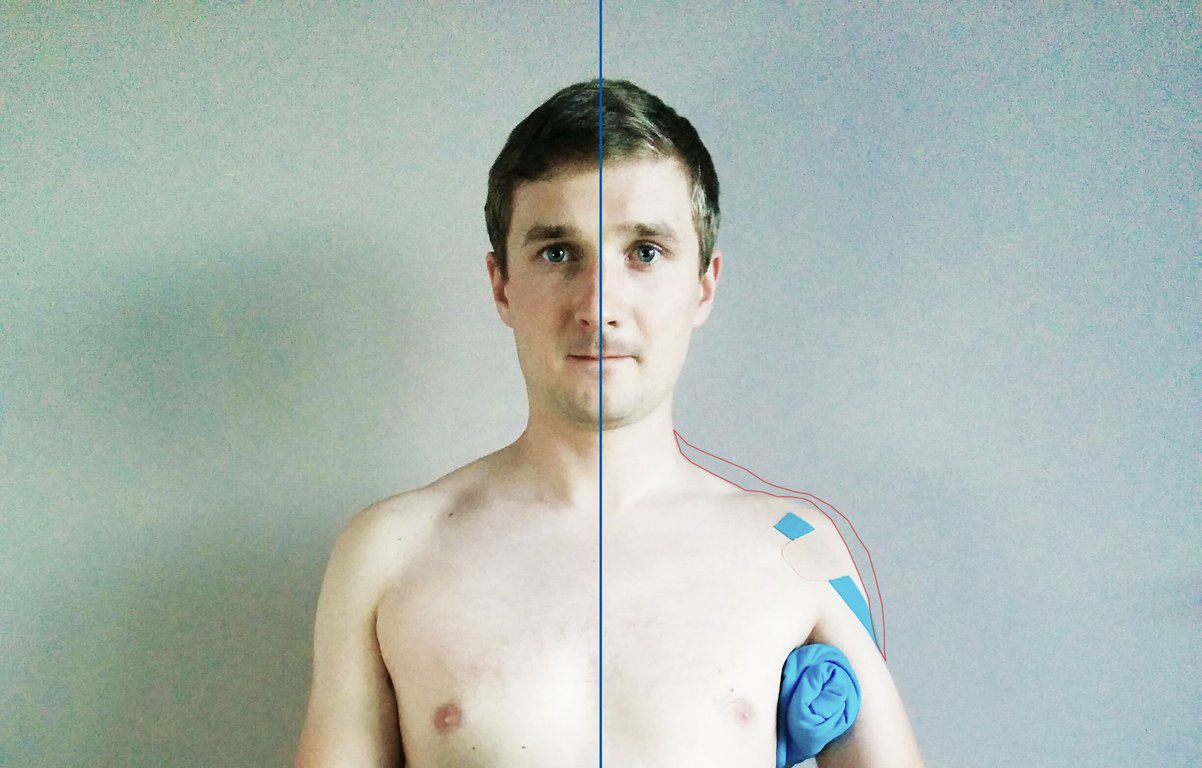
I remember that was my first question the next day. I can say they shrink pretty fast. But the shrinking isn't the biggest problem - the stretch and contraction is the bigger problem.
My hand was very slim after two weeks with no movement, but I wasn't aware that gaining muscle mass is easy in comparison with getting a contraction and stretch range back. I started very gentle exercises on the 5th day after the injury after consultation with the doctor.
✅ What are dislocated shoulder symptoms?
Unbearable pain
For instance, when we fall and hurt our leg we do feel strong pain just for a while. But with a dislocated shoulder, this pain doesn't go away.
I was lying for a moment thinking this pain would go away in a few seconds. When I noticed the pain was not fading I knew something was seriously wrong.
Not able to move
Can't move the arm is one definite symptom of a dislocated shoulder. I was able to move my hand and all fingers but movements involving my shoulder weren't possible.
Collarbone sticks out
Since the bone is much lower after the dislocation, one of the symptoms is standing out of a collarbone.
If you have a history of dislocated shoulder your symptoms may be different.
✅ Will the visualisation technique help for faster recovery time?
You've probably heard that Olympic athletes are using visualisation to improve performance. I tried that myself. I couldn't move my shoulder, but every day in the initial stage I tried to sit in a quiet place, put on headphones and listen to my favourite tunes. I imagined that I was waving my hand freely.
I can't really tell if that helped. It made my physiotherapists smile when I told them about it. Once we even tried it on the session. One thing I noticed was that the muscles became stiffer while I imagined the movements.
✅ What is the anterior shoulder dislocation?
It's when the bone is dislocated forward. In most cases, it's caused by a strong impact. According to Wikipedia, 95% of dislocations are anterior (mine was too).
In this injury, there is a higher chance of damaging the axillary nerve.
✅ How long does a dislocated shoulder take to heal?
No one can guarantee how fast you'll recover. Every dislocated shoulder is different - some of them will tear apart more muscles and some of them less. But your motivation to do the right things can significantly improve the recovery time.
In my case, it took me 18 months to fully recover and feel confident with every activity or sport.
✅ When will I be able to practise sports again?
I did shoulder dislocation exercises at least every second day for the first six months. Later I went swimming 1-3 times per week plus some home exercises.
On our wedding day, I could barely put my hand over my wife's height, but we danced and had a lot of fun anyway - this was six months after the accident.
I stopped rehabilitation after eight months and continued to focus on swimming instead. When I started swimming after my shoulder dislocation I wasn't able to fully extend my hand up. That made swimming harder but after a few months, I got better and better.
✅ Swimming after shoulder dislocation
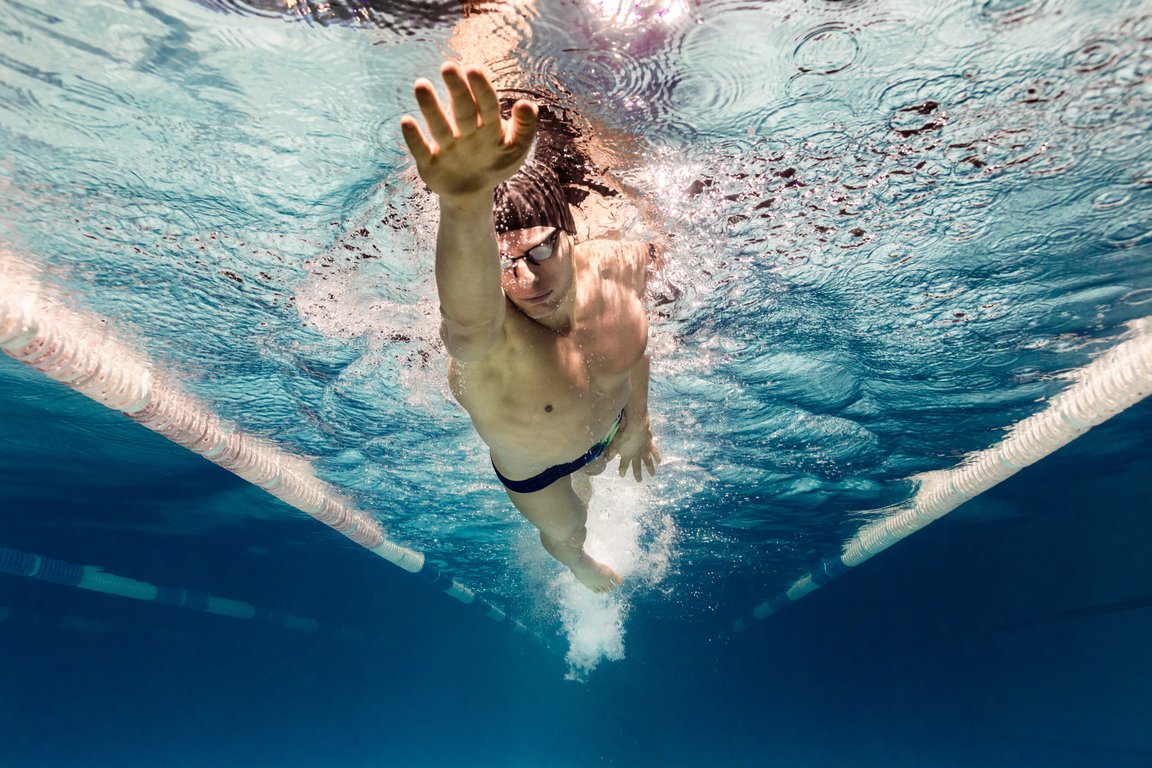
It's always a good idea to come up with the initiative and ask a physiotherapist if swimming would help you. © LIGHTFIELD STUDIOS / Adobe Stock
When I asked my physiotherapists they said any swimming style would be beneficial for your shoulder unless you don't push it if you feel pain.
I asked one of them for breaststroke because was interested in this style as it's beneficial for shoulders. But he said to me: it's bad for your pelvis. In breaststroke, legs rotate outward - as most people have a problem with this, he said. That was just his opinion, he didn't mention any studies in the area.
I swim freestyle.
In the year following the accident, I managed to swim more than 100 km (4000 pool lengths ) in freestyle.
✅ Can you run with a dislocated shoulder?
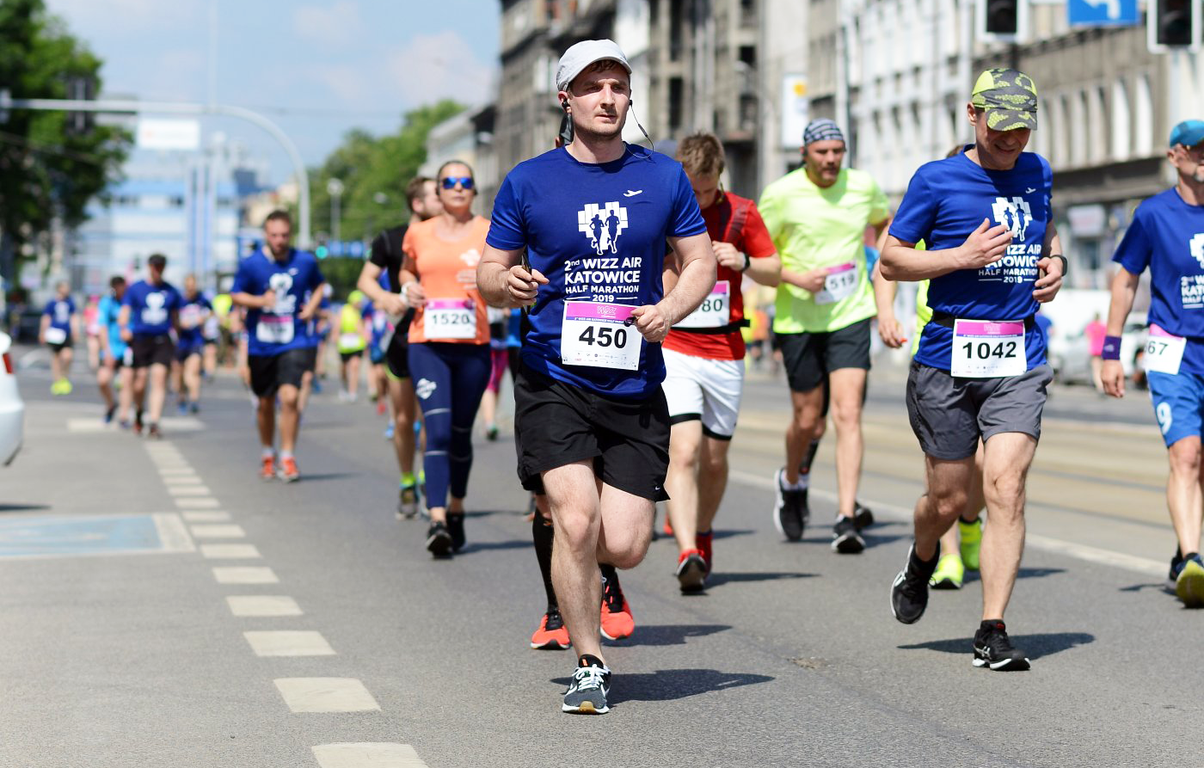
Running half-marathon in Katowice 2019
I couldn't. The pain was too strong when the arm was shaking in the beginning
In the first year, I had a 2 - 3 situations when I tried to run and felt something really bad in my shoulder. It was especially hurtful when I made a step on uneven ground and lost balance for a split second. It really felt like my arm was pushed to near dislocation.
I imagine that if you start at speed walking and gradually increase the speed and pay great attention to keeping the shoulder stable it could be done. But it could require a lot of patience.
Since 2nd year of recovery, I can run half-marathons and don't even remember having a shoulder problem.
✅ Can you move with a dislocated shoulder?
Yes, you should safely move when you don't feel pain. The pain should be the boundary and a signal it is still healing the tissue.
It is best to recheck this question with the doctor after they examine you, possibly on the first visit.
✅ When will the pain go away?
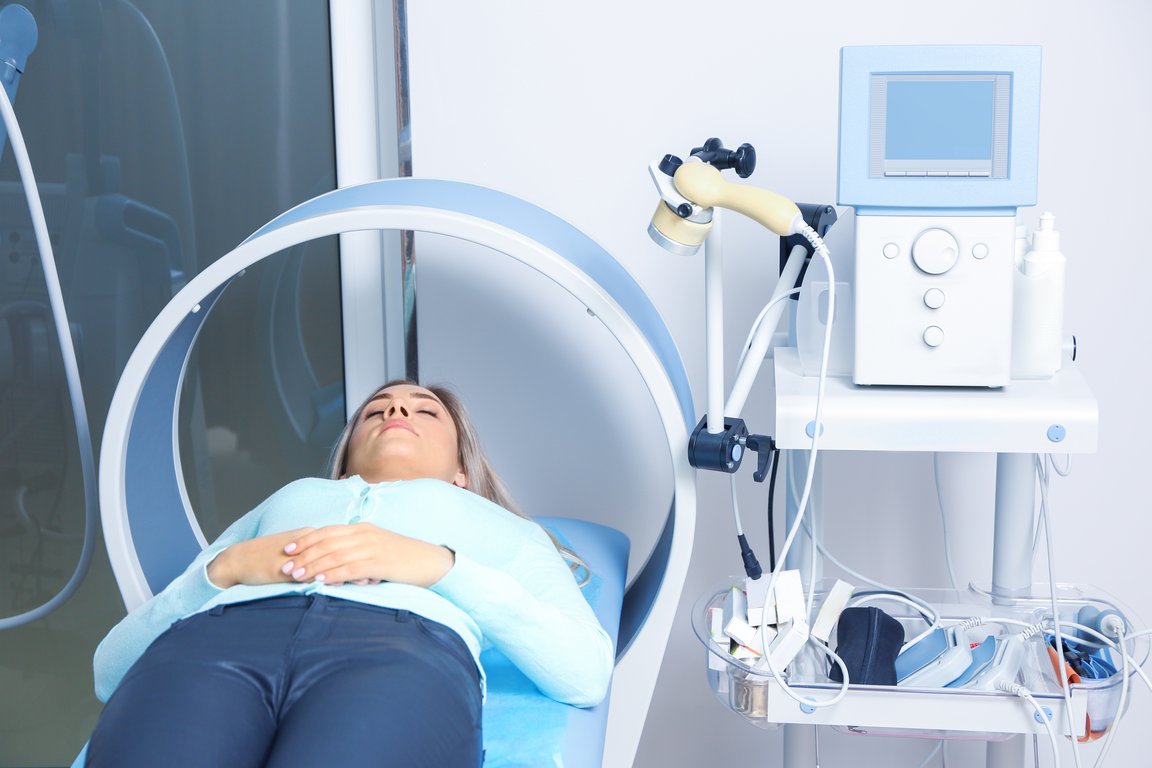
Magnetic therapy device used after dislocated shoulder © Africa Studio / Adobe Stock
In my case, it was after two months.
Two months after the accident it finally stopped to hurt, and I could sleep a whole night again. I remember I needed to wake up every couple of minutes to sit as lying was very painful. Once I fell asleep sitting with my head between my knees. I couldn't feel my legs for a few minutes after waking up 🙂 .
One thing that helped fight the inflammation and pain were therapies: laser, ultrasounds, magneto- and cryotherapy - after a 2-week session pain was gone.
✅ Which shoulder dislocation exercise should I do?
Can't tell you as I don't know if you have the same injury as I had. No one can tell for sure until you are examined.
Right after the damage you should schedule an appointment with the orthopedist and ask him for an ultrasound scan and advice on exercise. After about one month the doctor will direct you to the rehabilitation stage.
✅ Should I try this online shoulder dislocation exercise?
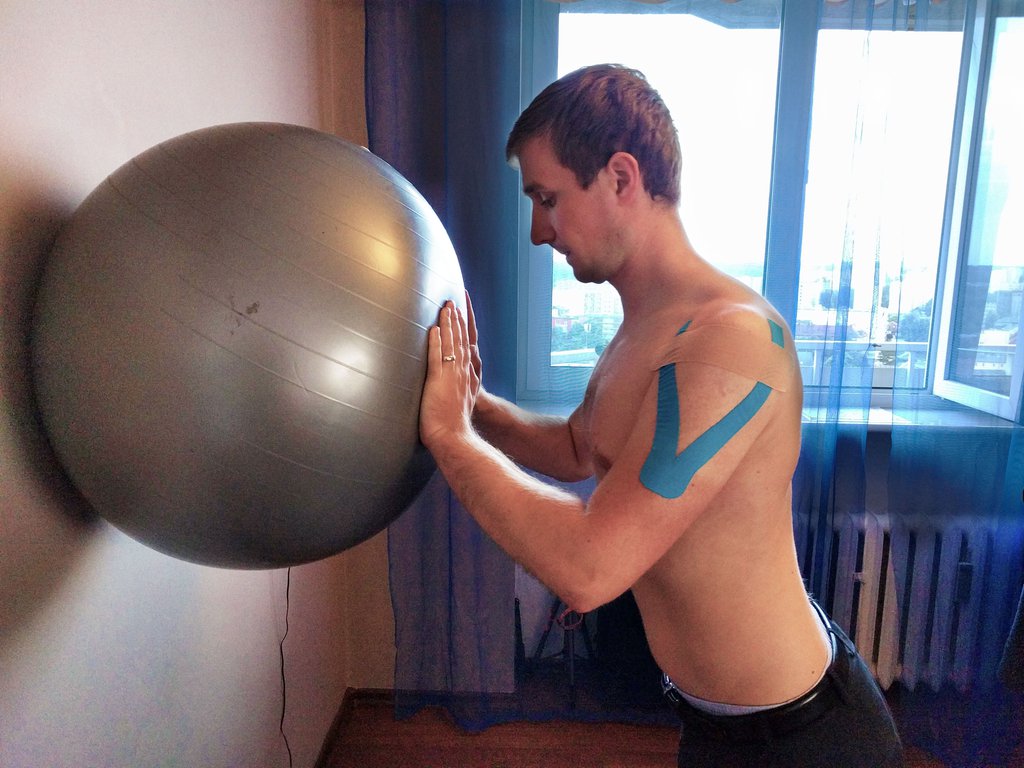
Dislocated shoulder exercise
The simple answer is no. It's not possible to redo any of these exercises only by looking at the computer screen. Usually, these exercises are difficult to do properly.
During the sessions, rehab personnel watches you constantly and corrects your movements.
I constantly did everything wrong and needed many corrections of my moves.
It's not like a fitness channel. During rehab appointments, you usually stimulate one muscle at a time.
To summarize my arguments:
- You need to know if stabilization muscles are balanced.
- You probably can't stimulate only one muscle in the back at a time.
- Must know the force you have to put into exercise to make it effective and safe.
- Someone should monitor the results of each exercise and plan them for you.
- The best feedback comes from professionals.
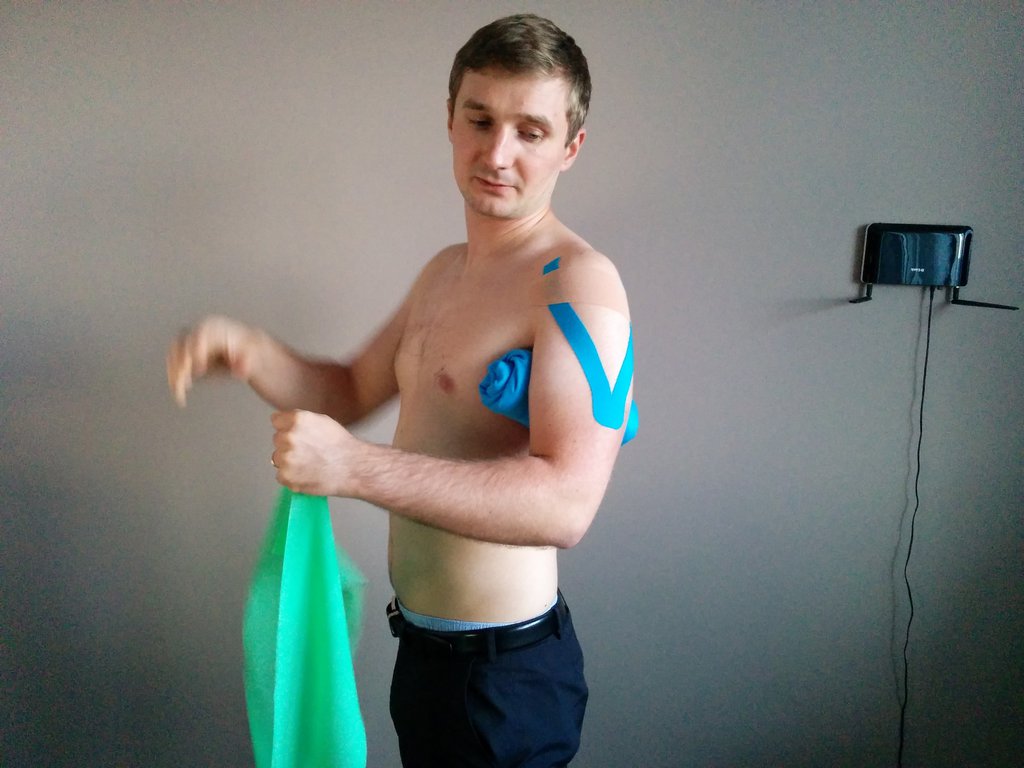
✅ When should I start shoulder dislocation exercises?
I started very soon - after a week. But the movements were like an inch in one direction. That's why ask your doctor when would be best to start for your injury and what exercises would be suitable.
✅ When can I return to work after shoulder dislocation?
I returned to work after 2 weeks but I sit behind the desk all day. I had no insurance and no sick leave (I'm self-employed). I had really strong pain in my back from sitting and wasn't very effective at work.
So I would say 2 weeks for the office is too soon. But depends on your situation. I would say try to refrain from working as long as possible and as long as the doctor says.
✅ When can I drive after dislocating my shoulder?
My doctor said that there is no law regulating this possibility. It is left to each individual common sense to decide. In theory, I could drive with a dislocated shoulder and a broken leg.
I wasn't driving for the first 2 weeks as I would feel uncomfortable. I would advise against driving a car and if you don't have a choice just think 2 times if it's a good idea to drive and if you will be able to react to road situations on time.
✅ Can a dislocated shoulder heal itself?
No.
Is your shoulder fully healed when all the tissue is regenerated? Not really.
The muscles stay weak and unbalanced and the chance of re-dislocating in future is significantly increased.
For me, healing means not only tissue regeneration but also building muscle stabilization defence around your shoulder and possibly making it even more resistant than it was before the injury.
✅ How to heal a dislocated shoulder faster?
- Do ultrasound, laser, chirogenic, and magnetic therapies (they are proven to be effective in a number of studies).
- If your orthopedist allows it you can start exercises after a few days (ask them about it).
- Do homework exercises after consultation with a physiotherapist.
- Get proper equipment and use it regularly: exercise ball, resistance bands, muscle knots massage ball, mat.
- Wear Kinesiology Tapes. Again, ask your physiotherapist for the best taping technique for your injury.
- Be careful with your shoulder. Remember that re-dislocating is the risk you want to avoid.
- Start swimming as soon as you can.
- Do muscle stabilization exercises.
- Check your shoulder with an orthopedist a few days after the accident and revisit on a regular basis afterwards.
Shoulder dislocation recovery tips

Physiotherapist working with the shoulder. © Photographee.eu / Adobe Stock
Easier said than done but you need a lot of patience and persistence.
Recovery from a shoulder dislocation takes time. Be patient and consistent with your rehabilitation exercises. Rushing the process may lead to setbacks.
Here are things which helped me recover successfully:
✔️ Seek medical advice soon after shoulder dislocation
You should seek medical advice after a few days the joint has been set in the hospital. It's the opportunity to answer your questions and check how your shoulder starts to heal.
After about 4 weeks your doctor should direct you to rehab. In the hospital, there won't be much time to talk as there are usually many people in the emergency waiting room.
✔️ Find a GOOD physiotherapist for shoulder dislocation rehab
I had the disadvantage of having a new physiotherapist every week in my first rehab centre. I needed to almost start over with everyone. There worked around 10 professionals and 3 apprentices and I worked with each of them.
I felt that my progress could be better if someone understood me and saw what worked for me from the very beginning.
On the positive side, I could ask about their opinions and learn a much wider range of exercises.
Physiotherapists aren't all equal - I noticed that some of them specialise in treating specific injuries and know less about shoulder dislocation.
And also like in life every problem can be solved with many possible solutions, and every therapist has different exercises they favour.
I could see quite a difference after changing the rehab center into a small professional cabinet. In the new place, I was thoroughly analysed for almost the same money. For the first time, they asked me more questions than I asked them! 😉 They seemed to be more passionate about their job and more concerned about my health.
✔️ Register to the rehab centre that is not too busy
The physiotherapist saw that I was struggling and advised me to change the rehab centre. That was very generous; I appreciate that. I suppose she was the most experienced of them all as she was able to see from a distance and find an out-of-the-box solution to my health even though she would earn less!
Later, I had 1 - 2 people watching over me - that was a vast improvement in comparison to the previous place where there were usually 1 - 2 (rarely 3) patients per physiotherapist.
I think all the professionals I worked with were equally good. The place makes the difference because even if a perfect person wants to help greatly but can't because it's too busy.
If you feel that there is something wrong with your sessions the best way is, to be honest, to ask them if they think that you could do better in another place and if they can recommend someone.
Should I buy special equipment for my shoulder recovery?
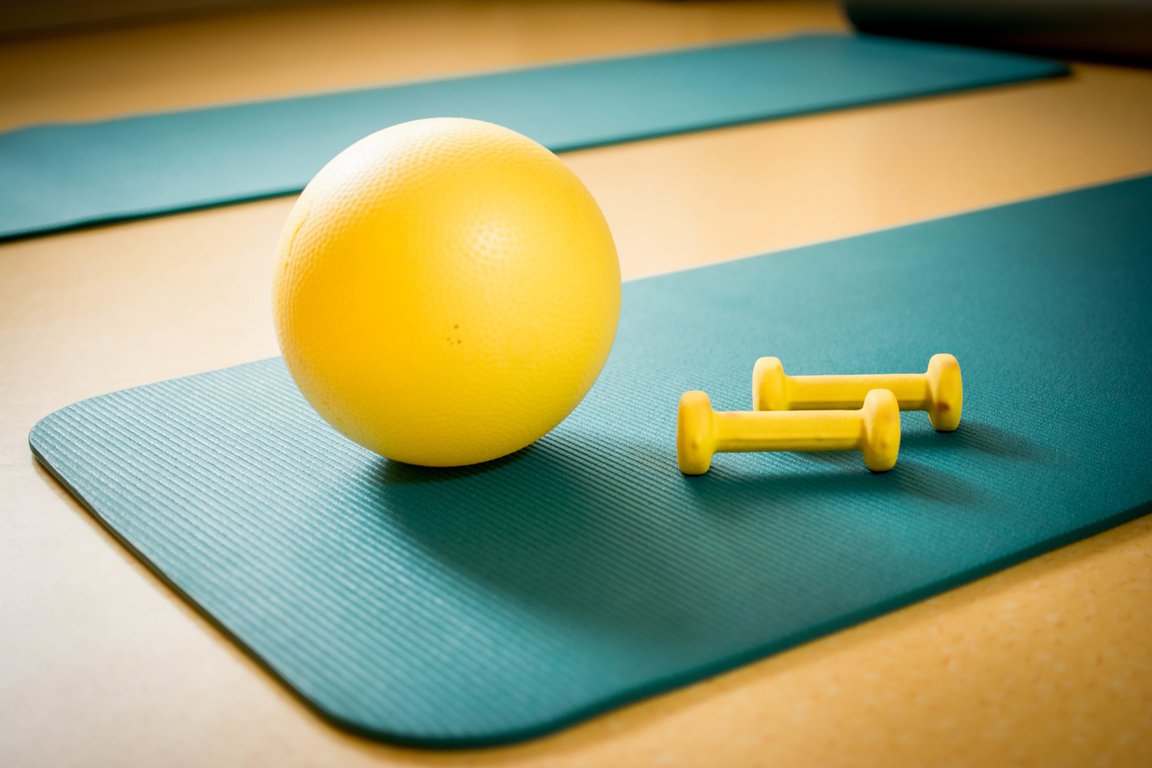
© monika / Adobe Stock
There are many good things that you could buy to help the recovery process of your shoulder.
I am fun of Thera-Band company from Ohio, the USA (they haven't paid me to write this).
- Their products are made from long-lasting and high-quality, toxic-free materials
- The effects of using them are proven in research studies
- Producers put a great deal into the safety of their products
I bought all the items below myself and they all contributed to my better recovery. I consulted the use of this equipment with my physiotherapist and then observed the results.
✅ Shoulder sling
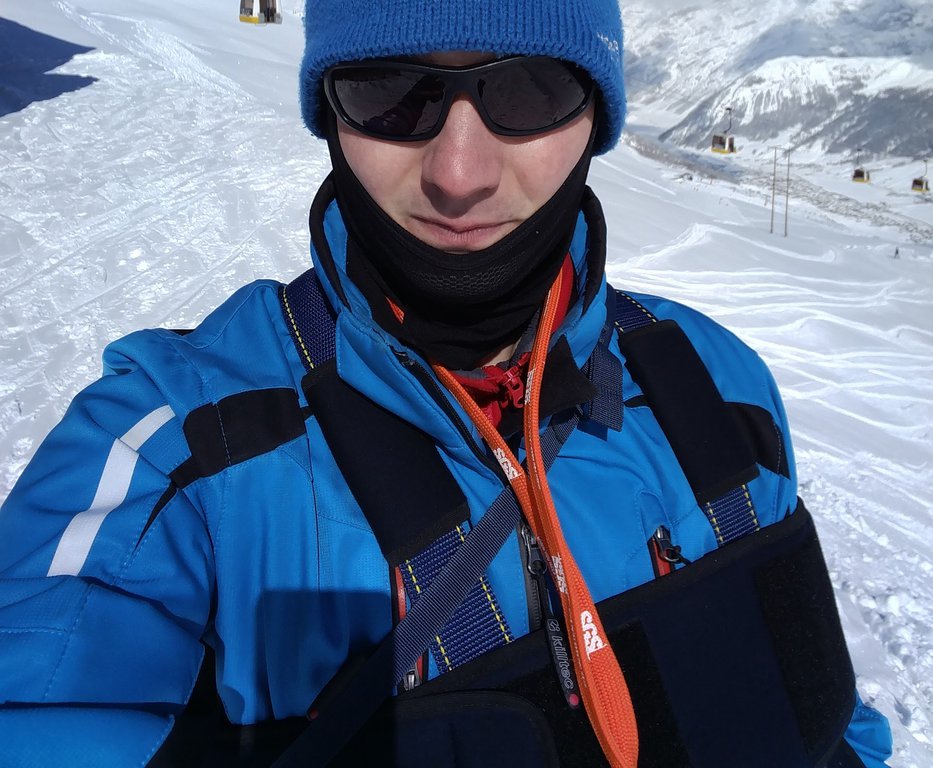
In the picture: my friends enjoyed the winter holiday but I couldn't
The sling should be comfortable, have the proper size and be stable. I used two slings because after some time the first one smelled. Also, a good addition is a strip you can wrap around your waist - this helps during walking preventing additional shaking.
It's only for the first few weeks and it may depend on what your doctor says.
This shoulder sling is very similar to the one I used:
✅ Exercise ball
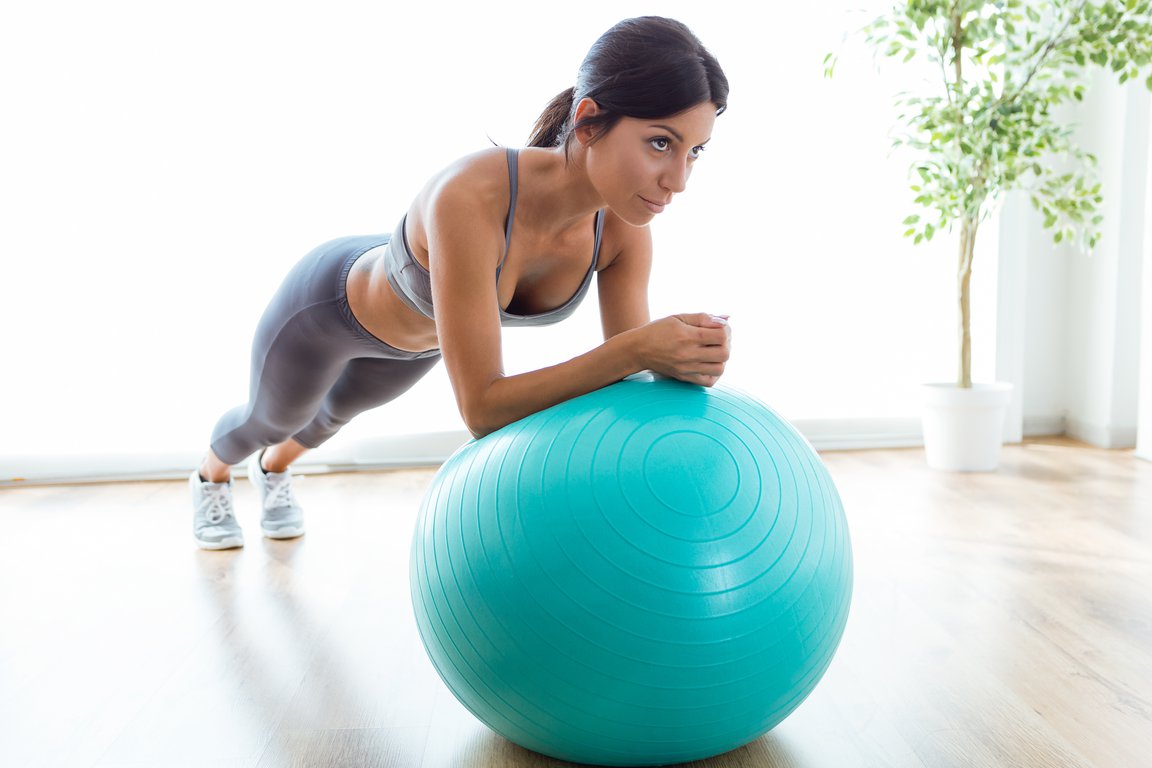
© nenetus / Adobe Stock
You can use them instead of chairs for a dynamic position because static positions are bad for your spine. They enrich your exercises.
I did half of my exercises with a ball and I can combine it with other equipment, e.x. resistance band + ball + mat can save time and make exercising more comfortable.
I recommend a ball for exercises for your injury and to continue after you are fully healed especially if you work at the desk. I have two Theraband balls currently, red and green.
✅ Kinesiology tape for dislocated shoulder
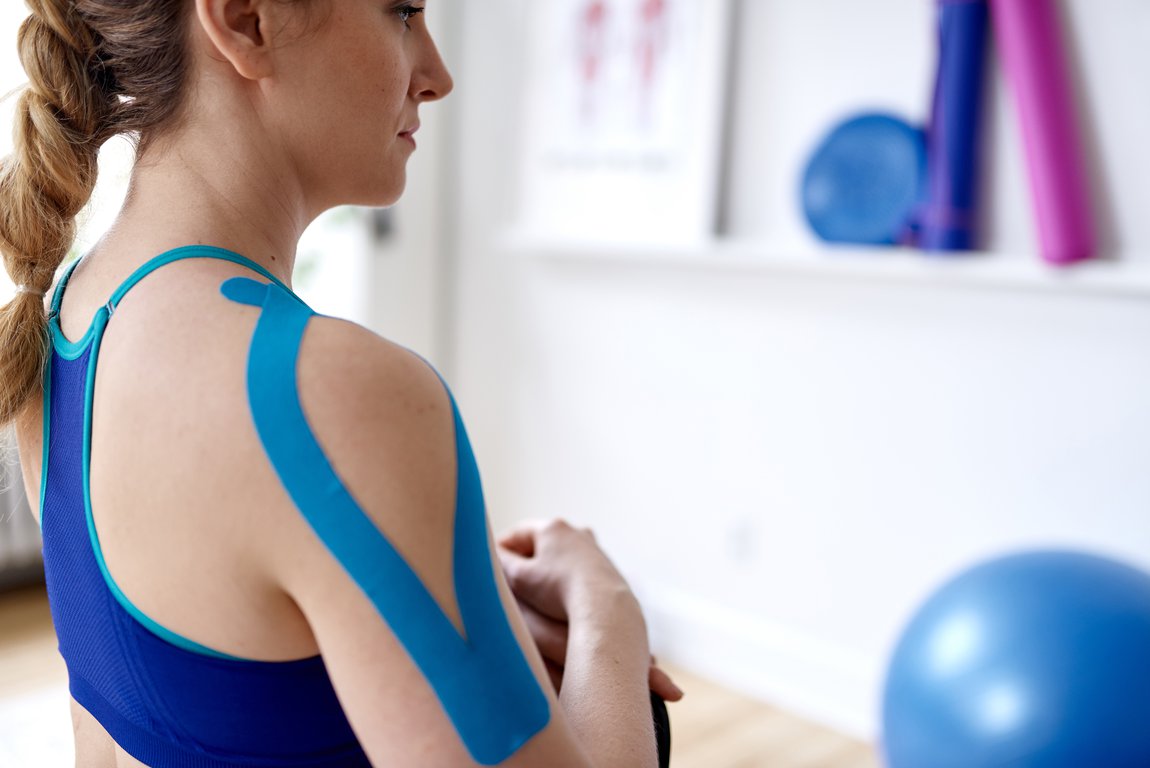
© AYAimages / Adobe Stock
I could feel the effects of wearing the tapes strapped around my shoulder - my muscle tension in the area was reduced. I was also swimming with them. Unfortunately, the tapes I used caused a rash on my skin so I had to stop using them.
Anyway, I recommend them because I saw positive results and the physiotherapist said the rash happens only for very few people.
It is best to apply them for the first time with the help of your physiotherapist.
✅ Resistance band
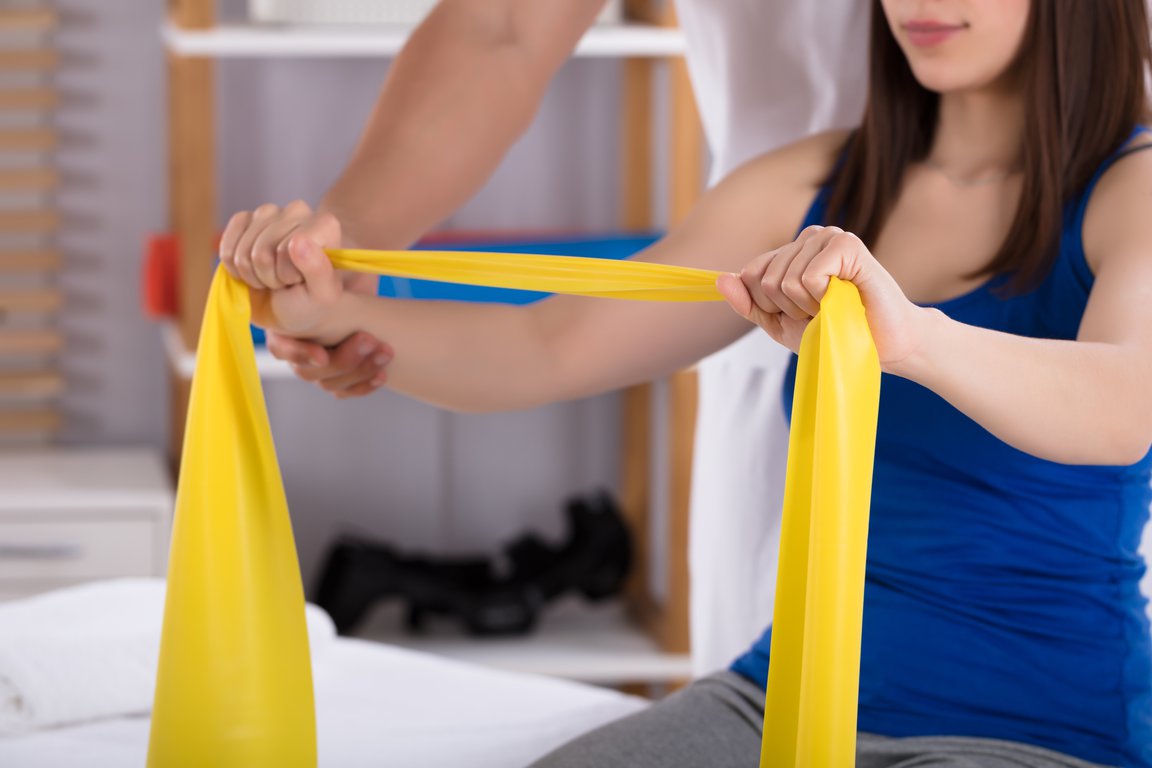
© Andrey Popov / Adobe Stock
I did exercises with bands every day since the second month and later at least 2 times a week.
Bands are great because of the huge variety of possible exercises and the ability to increase the difficulty gradually.
The way it works is it causes resistance when stretching. According to many people, it's very beneficial for muscles and joints. The further you swing the arm, the more muscle work is required. Compared with lifting weights where muscle effort is the same or depends on the angle and can create leverage which sometimes may be bad for joints.
✅ Muscle knots massage ball
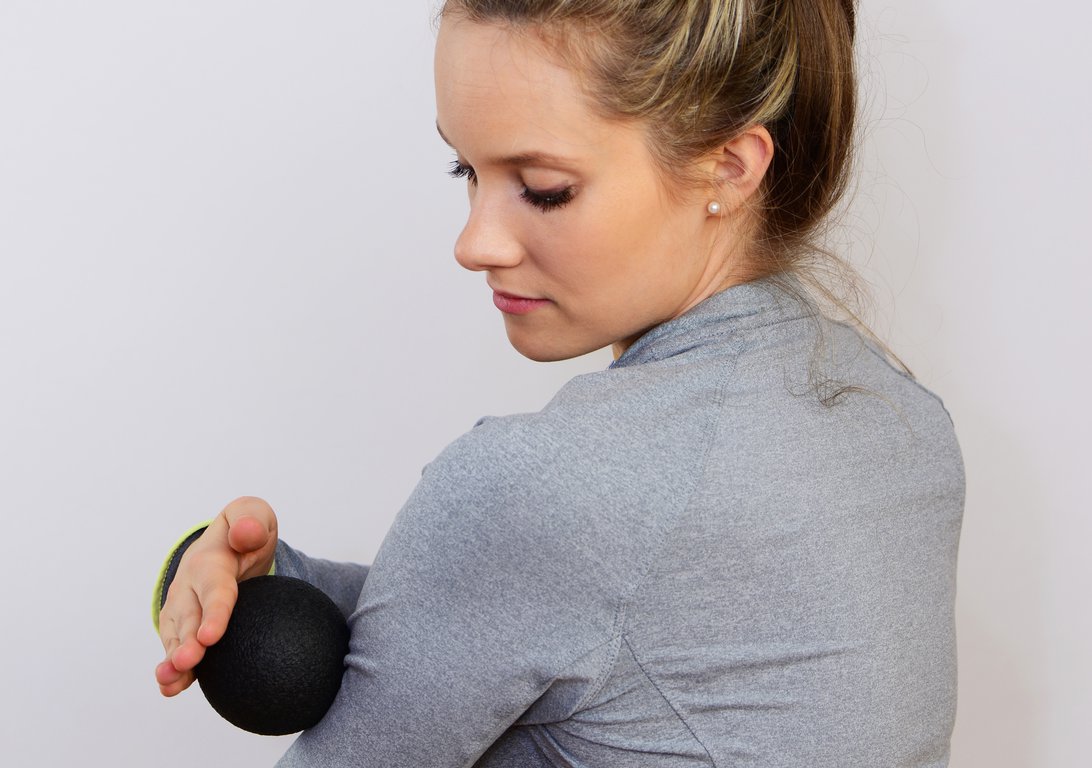
© Printemps / Adobe Stock
It is one of the best dislocated shoulder massage techniques and it's easy to do it at home.
This is my most liked item on the list as it brought me most of the relief. My neck and back muscles were very stiff and it helped me unblock and soften them.
Massage your back using the wall - stand back to it and put the ball in between you and the wall. Then press your back to the wall and move up or down. This will reduce muscle tension before exercise or after getting up in the morning.
Massage has many benefits. It relaxes the muscles and improves blood flow so more oxygen and minerals are flowing. It also removes muscle knots which are common after longer muscle inactivity.
✅ Exercise mat
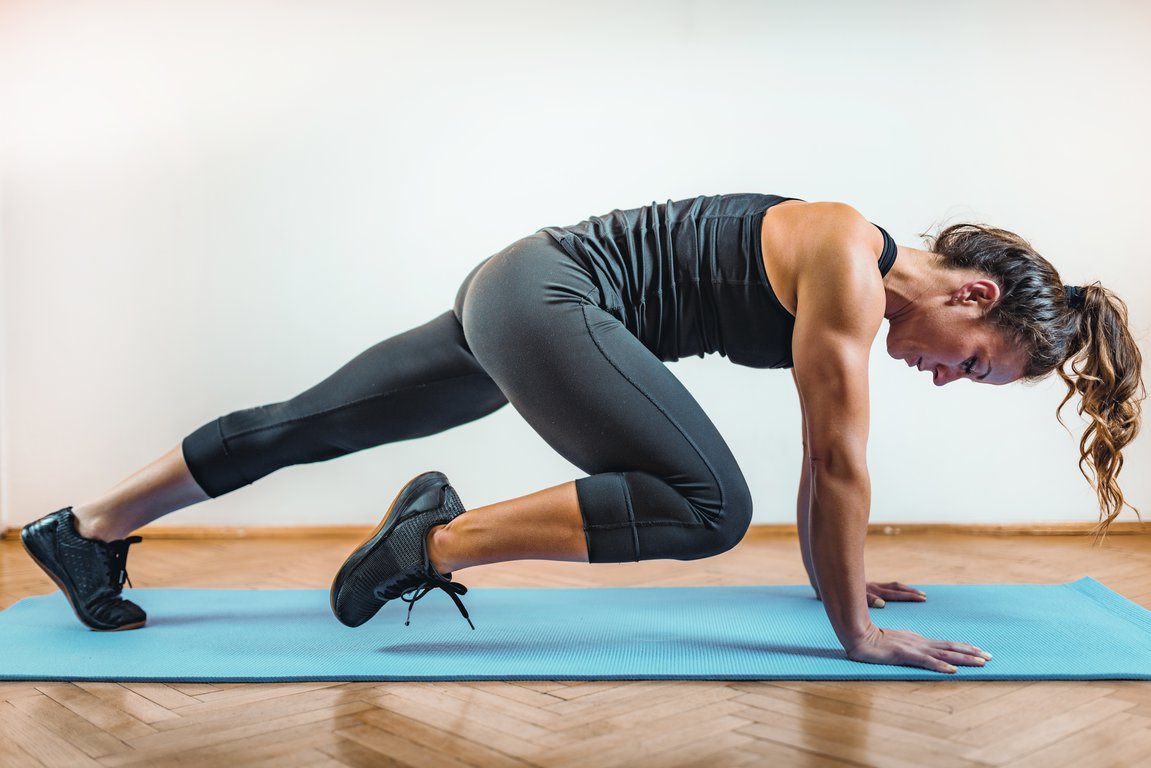
© Microgen / Adobe Stock
I always used the mat for exercises in the rehab centre so I decided to buy one after I finished sessions and wanted to continue exercising at home.
I use the mat for all kinds of home exercises. I have the red color which is the thickest. I mostly combine the mat with exercises on the ball and sometimes just to relax and meditate.
✅ Balance stability disc
This item is not directly related to shoulder dislocation but it helped me immensely with correcting my posture by doing a workout for body stabilizing muscles.
I highly recommend it to all people who spend too much time in front of a mobile phone or office desk. The balance stability desk is great for core muscles.
What I don't recommend for shoulder dislocation?
❌ Shoulder stabilizers
I don't recommend any stabilisation devices that limit your movement unless a doctor or physiotherapist advises you to use it. The only exception is the sling which you should wear for the first few weeks.
The stabilizers are bad for you and cause more harm than good because:
- they limit your movements
- they cause the freezing of the joints limiting their motion
- it all decreases muscle stabilization.
Stablizators may be recommended in some rare cases but generally should be avoided. You should try to use your arms as usual and do not push them too hard when you feel pain.
❌ Collagen-rich diet
Collagen gets entirely digested in our stomach so it's a waste of money.
In addition, young men often experience joint dislocation because they have too much collagen. It was concluded that the probability of shoulder dislocation lowers with age probably because collagen density in our body decreases.
Avoid soda and highly processed foods, and eat lots of vegetables and fruits as WHO advises.
On the bright side of the dislocated shoulder
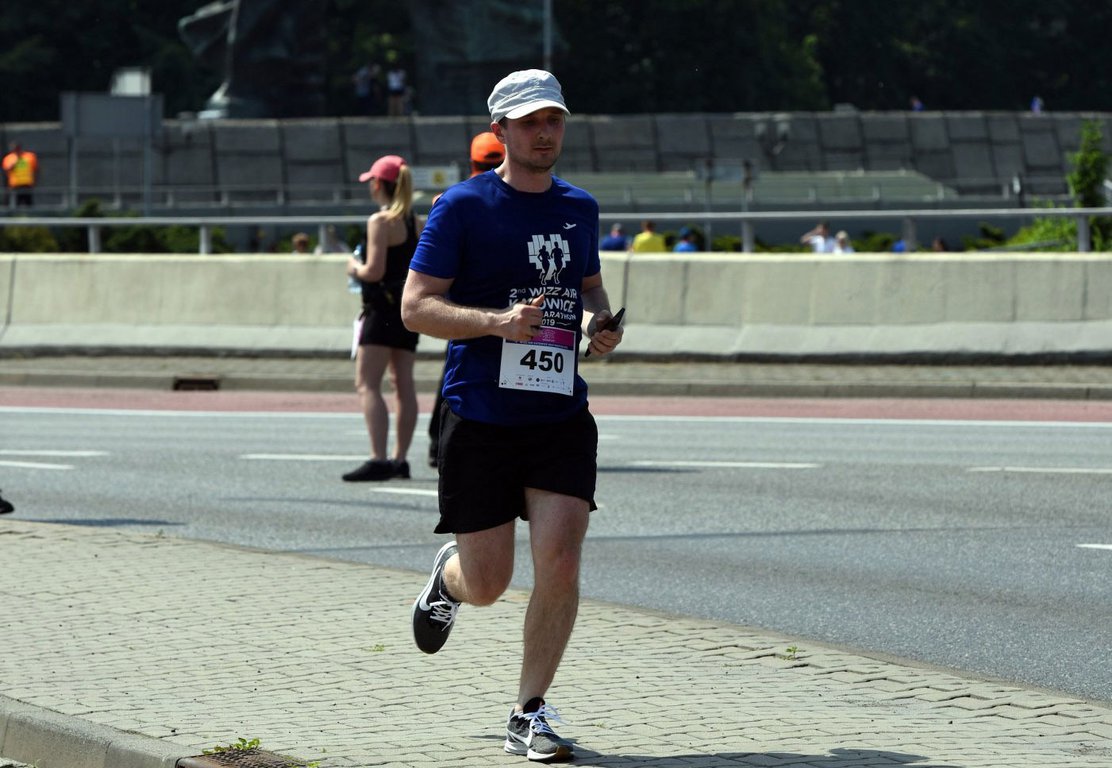
I ran a Half Marathon in 2018 and 2019 and swam ~70 miles a year since the second half of 2016. Four years ago I started doing pushups (e.x. in the year 2019 I did 20856 pushups in total). Before the injury, I did zero.
✅ Posture
I've become aware of my posture problems caused by prolonged sitting and lack of activities. I started to exercise and swim regularly since then.
In the long run, I think I'll gain more than I lost - I remember now to look after my posture. This is essential as I usually sit for extended hours every day and will probably continue to do so for the rest of my life.
I have to know how to handle the muscle stress of sitting. I need to exercise regularly and use tools like an exercise ball to counter the disadvantages of staying in a static position all day long.
✅ Knowledge
I learnt a lot about my body and got to understand myself more. I know what might cause muscle stiffness and how to deal with it.
For instance, neck stiffness may indicate that your muscles lack oxygen. It may also be caused by a lack of minerals (bad circulation in muscle), infection (flu) or backbone problems.
✅ Challenge
It was kind of a challenge. I won my health back and I feel good about it. I hope you can think the same about your experience. I returned to sports I used to do a long time ago - I swim now more often than I did years ago.
✅ Your Family
I hope you'll be surrounded by your close ones to help and cheer you up. And remember to thank them as you'll be suffering and probably become a bit of a pain in the neck to the others 😉.
I started appreciating more all the household work my wife did when I was recovering.
✅ In the head it is
Finally, the process of healing and recovery takes place mostly in your mind. It's like a tactical match or chess game. You must pick up a fight if you want your health back. Well, not only back but even improved!
You need to take a journey, learn new techniques, meet new people, do research, sometimes make a fool of yourself if you are new, train, do a plan, note insights, be precise, find balance, handle disappointment, be consistent and creative.
And in the end, every crisis is an opportunity to change your life for the better.
I hope your dislocated shoulder recovers well!
Getting motivated and up-lifted on your recovery
I highly recommend joining the group that shares the same goals, like getting recovery and sharing each other's experiences to increase motivation.
I wish such a platform existed while I was recovering; this would have made things much easier. You should become a member because now it's possible:: GoalWatch.net
How did it happen?
Together with my wife and friends, we had a wonderful day skiing in the Tatra Mountains in Slovakia.
It was afternoon, we were all tired after several hours spent on the slopes. We were about to go home and I decided to jump for the last time. I did the jump but didn't land on my legs - I hit the ground very hard. And then my dislocated shoulder story began.

